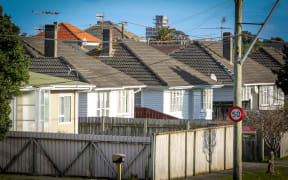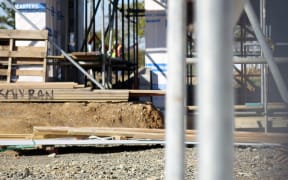Power Play - The government earmarked $2 million for emergency housing in Auckland in last year but that money is yet to be spent - so what is stalling the process and how can the government speed things up?
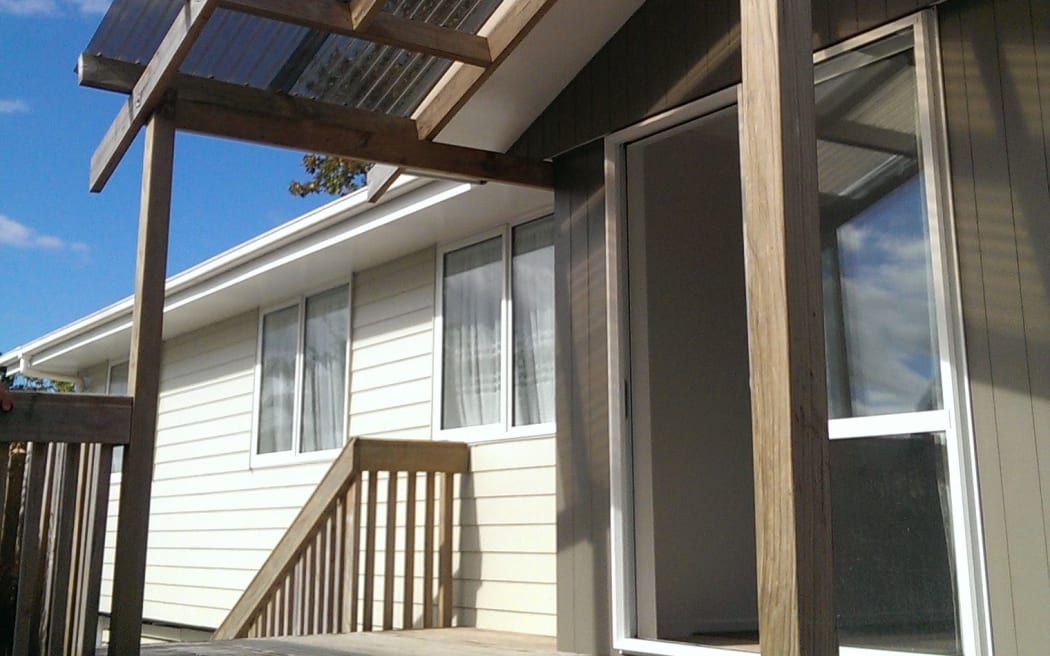
Social housing in the Auckland suburb of Ranui. Photo: RNZ / Lauren Baker
The government announced the funding in September last year to deal with a major shortage in temporary accommodation for vulnerable New Zealanders.
The $2m is supposed to provide an extra 120 emergency housing places a year for families and individuals.
Yet money allocated for the express purpose of providing the emergency housing is still sitting in government coffers.
In the meantime, the Ministry of Social Development has had to resort to putting people up in motels and lodges.
Cabinet documents obtained by Labour show the government was told in September the situation in Auckland was acute, with virtually no vacant properties for people in urgent need.
But when asked about the $2m this week, the Minister of Social Development Paula Bennett said her staff were still negotiating with housing providers to decide where the money would go.
Labour's housing spokesperson, Phil Twyford, does not buy that argument and says the process is simply taking too long.
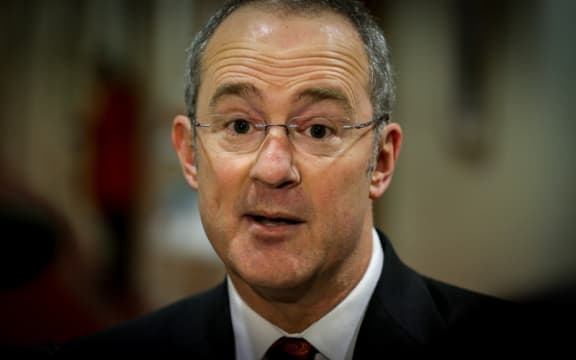
Phil Twyford Photo: RNZ / Alexander Robertson
Mr Twyford says nearly five months on, the government does not appear to have made any progress and the problem is out of control.
He calls $2m a "measly" amount and just a drop in the bucket compared with the scale of the problem.
As he sees it, the government is sitting on its hands and could fix the problem tomorrow if it made it a priority.
But Mrs Bennett scoffs at that and says Mr Twyford has no idea about the appropriation process.
She says $500,000 has already been distributed and the $2m of "new money" for new beds still needs to go through its process.

Paula Bennett Photo: RNZ / Alexander Robertson
She argues the money is being spent on behalf of New Zealanders and due process needs to be followed.
Mrs Bennett is not denying there is a problem and acknowledges there is work ahead.
Further more, she defends the fact people are being put up in motels saying that's nothing new - it's been happening for years and is better than people being out on the streets.
She has also hinted she is considering further initatives to tackle emergency housing but won't say more than that at present.
Housing 'desperately needed'
However Green Party co-leader Metiria Turei says it is "disgraceful" that the money is just sitting there when the need for housing is so high.
Mrs Turei argues there are organisations available and ready to help - they just need the resources.
She says the government is sitting on $2 million while families, including children, are living in cars, garages, under bridges or sleeping outside.
Meanwhile, Children's Commissioner Russell Wills has long been calling for more action on better housing.
This week he made that call again, telling MPs the Residential Tenancies Amendment Bill is a wasted opportunity which will not improve the poor conditions in which some children live.
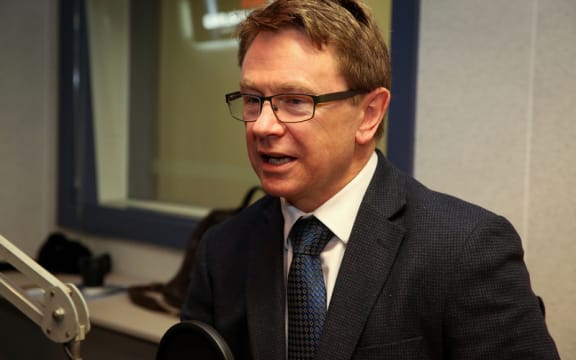
Russell Wills Photo: RNZ / Alexander Robertson
Mr Wills says all children should be able to live in a warm, dry, healthy house.
And he's right. It is, after all, the children who live in cold, damp and mouldy housing who end up in hospital wards with respiratory infections.
Poor living conditions have knock-on effects too - it does not just cause health issues - it affects children's quality of life and how well they perform at school.
So, how long should it take a government to allocate funding for an accommodation crisis that is inherently urgent?
Labour and the Greens say there is money that should be spent now so people can get into housing tonight or tomorrow, not in several weeks or months.
As opposition parties see it, the problem is urgent so the solution should be too.
But that's easy for the opposition to say.
Organisations need to get a proposal together and there has to be a tender process - there is no shortcut.
The government has stayed on message - it says it needs to go through the proper checks and balances.
If it did not do that, then it would be accused of favouring certain providers and rushing in.
It might have allocated the money to emergency housing but that does not mean it gets spent overnight or even in a few months.
However, some would argue that funds for emergency housing should be dispersed with more urgency.
Housing, particularly Auckland housing or the lack thereof, is a hot topic and it's something any opposition party can use to take a whack at the current government.
Labour didn't escape housing problems when it was in government either.
It remains a complex issue for any government and there are no easy fixes.
The question is does this government need to look at how to speed up bureaucratic processes for urgent needs such as housing?
Could the process be streamlined?
Maybe it is time to look at new ways to approach our citizens' most urgent needs - housing needs that can't wait for too many papers to be signed or boxes ticked.
Whether the government puts people in a motel or emergency housing, it is still going to cost the taxpayer.
And a motel might be nice the first night but the novelty wears off pretty quickly.
Most people usually want a place to call home. Emergency housing is a step up but to use a hackneyed phrase - it's still the ambulance at the bottom of the cliff.
What about the big picture?
This country is struggling to contain our rising population and the urgency is only increasing. If we're not careful, overcrowding in Auckland could be just the beginning.
For those sitting comfortably in their own homes the housing crisis might not appear so palpable but for those making their home in a garage or caravan, it's unlikely to slip their minds.
